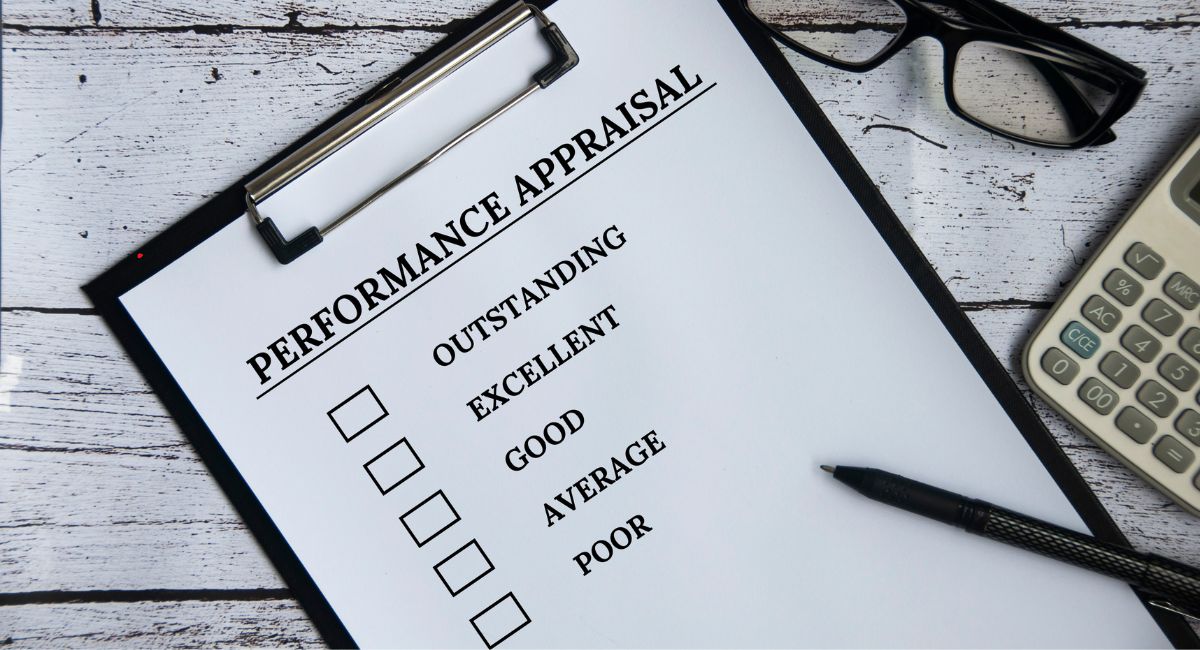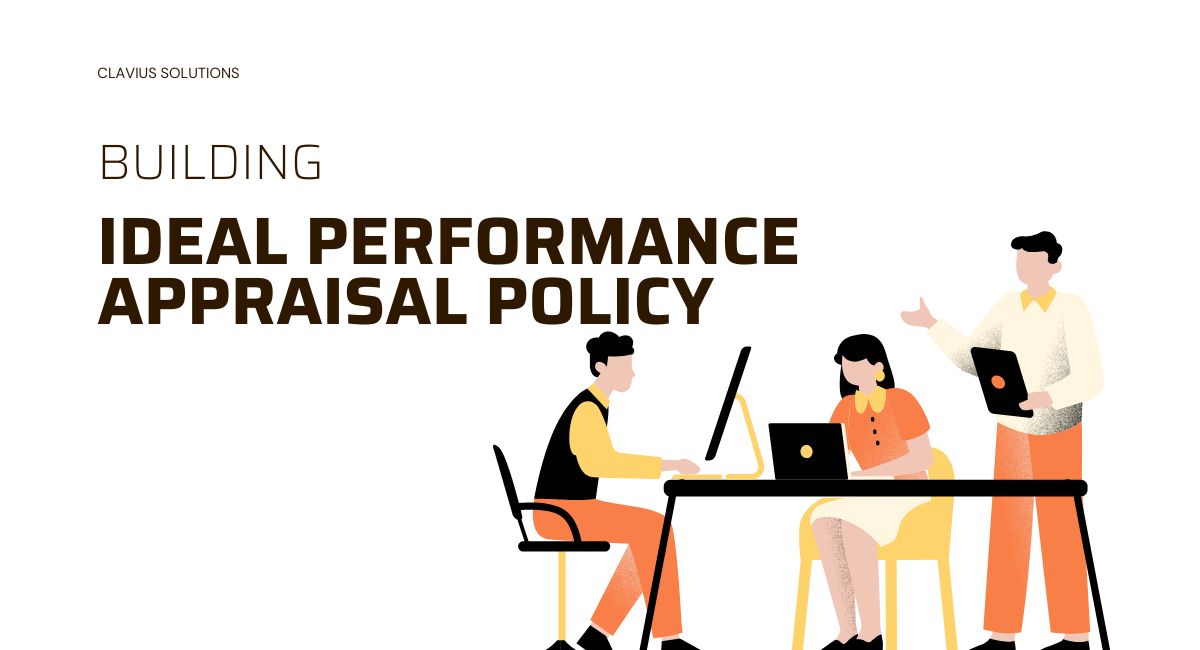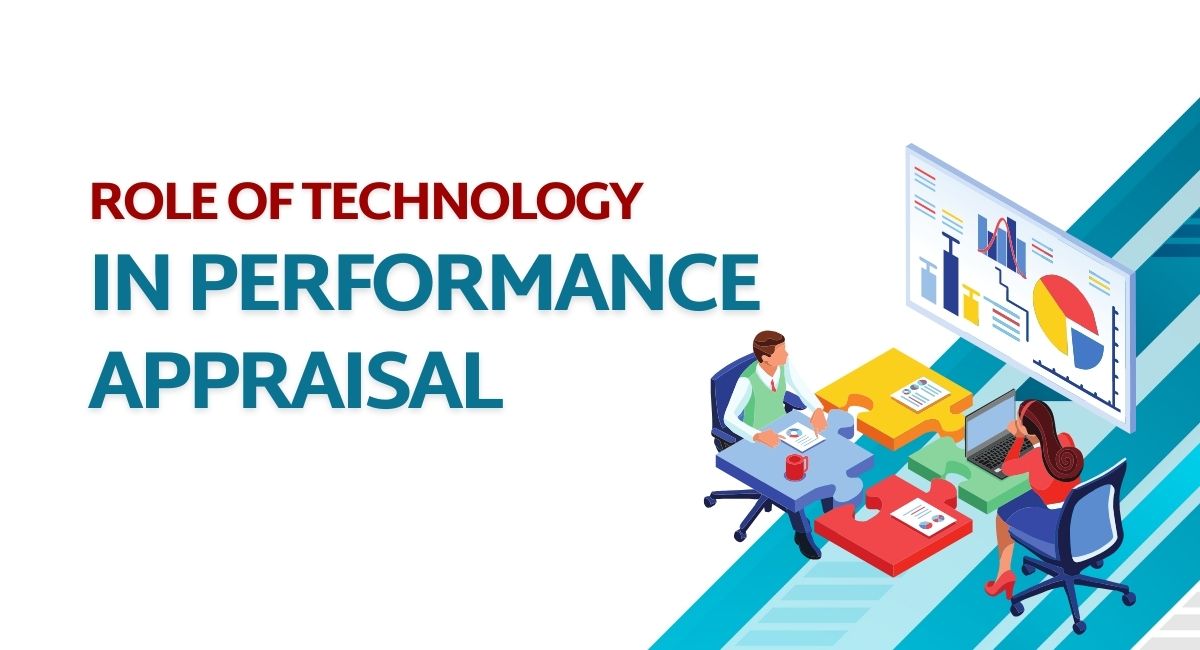Well-designed performance appraisal policy is highly essential for any organization to work effectively. It provides a documented methodology through which actual performance can be gauged, documented, and improved.
A policy like that helps convey transparency, fairness, and accountability. Such a policy creates incentives and rewards proper working towards shared objectives by the employees, and employers get responsible human resources for efficient functioning.
In today’s competitive scenario, the usage of informal assessment to judge the employees cannot be done. Instead, a well-defined performance appraisal policy encourages continuous improvement, professional development, and productivity. Let’s have a look at the essentials of an effective performance appraisal policy and what’s to be done steps in developing one for your organization.
What is a Performance Appraisal Policy?

A performance appraisal policy is a formal statement of the principles, processes, and guidelines for employee performance evaluation. It is about developing a fair system that will correctly provide the consistency on how to measure the contribution of an employee in terms of productivity or value added to the organization.
The purpose of the performance appraisal policy would be toward clear performance criteria, feedback mechanisms, and development plans. This is not just for the purpose of criticism but also opens talent for recognition of achievements, with growth being seen.
Why is a Performance Appraisal Policy Critical?
A performance appraisal policy brings much-beneficial input for the organization and its employees.
1.Alignment with Organizational Goals:
Employees better understand their role in achieving business objectives. This alignment is vital for productivity in sectors like non-IT recruitment, where precise goal tracking is crucial.
2.Employee Engagement and Motivation:
Feedback and recognition motivate employees to be more productive and committed in work. It gives them a feeling of belonging and being valued. Employees become more productive and dedicated to their work.
3.Skill Development and Training Opportunities:
Performance appraisals identify knowledge gaps in employees and skills gaps in the abilities and provides directions to conduct skills training and career development.
4. Fair Remuneration and Promotion
A performance appraisal system ensures that raises in pay, promotions, and rewards will be based upon merit.
5. Open Communication:
Performance appraisal fosters open communication without interemployee and inter-management communication barriers.
Basic Building Blocks of an Ideal Performance Appraisal Policy

1. Objectives and Reasons:
A good performance appraisal policy should clearly provide its rationale. Some of these may be:
- Provide for an evaluation of the employee input.
- Exceptional performance recognition and reward.
- Identification of development areas, which may feature professional growth.
2. Performance measures and standards
Measurable standards are well defined and leave no room for confusion. To appraise fairly, adjust the performance indicators for every position. Sample measures would include:
- Sales conversion percentage for sales representative
- Number of project completion timelines for project managers
3. Appraisal cycle
Determine the frequency of appraisal. It might be quarterly, bi-annually, or annually, depending on how it fits the organization and employee needs.
4. Feedback channels
Feedback should be a two-way process. Employees ought to be allowed to give their experiences, problems, and suggestions during appraisals.
5. Development Plans
An effective performance appraisal policy should have action plans that are development-oriented. This is to train and prepare employees for other occupations in the future.
6. Policy Clarity
A Policy should be communicated clearly to all parties involved. Let the employee know clearly the criteria, processes, and output expected.

How to Formulate Performance Appraisal Policy
Step 1: Define Clear Goals
Determine the outcomes you want for the policy. Examples may include productivity enhancement, identification of potential leaders within the organization, and so on.
Step 2: Define Performance Standards
Create performance standards for each role with specific, measurable, achievable, relevant, and time-bound criteria. This will make it more action-oriented and worthwhile.
Step 3: Develop Instruments of Assessment
Select tools and methods that will be most effective for your organization. Some of the instruments are:
- Rating scales- Used for quantitative appraisals
- Behavioral checklist- Used for qualitative ratings.
Step 4: Train Managers
Arm managers with the ability to conduct fair and productive appraisals. Educate on:
- Rendering constructive feedback.
- Unconscious bias.
- Possessing good management to enact in those difficult conversations
Step 5: Pilot the Policy
Try out the policy on a small group before releasing to the whole organization. Collect feedback as a means of fine-tuning and perfecting the process.
Step 6: Clearly Communicate
Communicate this policy to the whole employee workforce. Explain its benefits and features. Transparency breeds trust and cooperation.
Step 7: Monitor and Update
Re-evaluate the policy at regular intervals. Engage with employees and managers to keep improving it.
Best Practices for Performance Appraisals

1. Growth Mindset
Treat appraisal as opportunity for growth rather than an assessment of failure. The positive mindset makes employees less resistant to feedback.
2. Objective and Subjective Assessment
Mix of quantitative with qualitative insights. Include teamwork, creativity, and adaptability besides KPIs.
3. Record Keeping
Documentation of appraisal results offers accountability and acts as a check list of references for subsequent decisions.
4. Employee Involvement
Ask employees to gear up for appraisals so that they can reflect on their performances. This enhances self reflection and openness during the discussion
Complexity of Performance Appraisal Policies
The need for an effective performance appraisal policy is significant, but practicing it is tricky
1. Fear of Feedback
Employees always judge feedback as condemnation rather than improvement. A good performing appraisal system ought to be supportive, not confrontational.
2. Subjectivity in Grades
Bias may result in unfair grading. Keep standardized criteria and deploy tools that do not allow subjective grading.
3. Resource Overload
Periodical grading overburdens the resources. Automate the process and keep the structured templates.
4. Inaction
The outcome of the appraisal may become meaningless if no actions come from the appraisal. Make sure that the feedback leads to actionable development plans.
Role of Technology in performance Appraisal

It is with the advent of technology that performance appraisals have undergone tremendous changes. Technology made performance appraisal better, faster, and wiser. Modern tools include the following features:
- Tracking of performance in real time.
- Automated reporting and analytics.
- Video conferencing for virtual feedback sessions with remote teams.
Organizations using advanced HR software, like those offered by the best HR consultancy services, streamline their appraisal processes while maintaining fairness and consistency.
Performance Appraisal Techniques
These are some of the examples of performance appraisal techniques. Organizations may select any technique according to its culture and objectives:
1.360° Feedbacks:
The approach is overall in the way it appraises, because such employees will also get assessment feedback not only from their immediate supervisor but also from peers and direct reports and sometimes even from external stakeholders. 360° Feedback approach may, therefore, provide a more holistic view of their performance- strengths and potentials for improvement from many views that could result in a much more balanced approach to development.
2.Management by Objectives (MBO):
Management by Objectives is a performance appraisal technique where the success of the employees is measured against their ability to attain clearly specified, already set objectives agreed upon to achieve the objectives of an organization. This practice assures that both the employee and the organization are focused on measurable results, which makes it easier to track progress and have an efficient performance assessment.
3.Behaviorally Anchored Rating Scale:
The Behaviourally Anchored Rating Scale, which is commonly known as BARS, is an assessment method based on specific behaviours anchored to major job responsibilities. The method uses pre-determined behaviour examples for the explicit illustration of guiding rating for the employees by making the process objective and less ambiguous during the process of appraisals.
4.Self-Assessment:
Self-evaluation encourages the subordinates to develop an observation of his/her own self-performance and provides an opportunity to think and reflect on one’s achievements, challenges, and areas of improvement.
To the individual’s advantage, this process enhances self-awareness and gives a person the ability to take charge of personal and professional development and leads to proactivity in continuous progress.
Features of recruitment and performance appraisal
The features of recruitment and performance appraisal are interconnected; a well-structured recruitment process will form a basis for fair and effective appraisals. There will be clear job descriptions, skill-based hiring, and objective evaluations; therefore, new recruits would support the goals of the organization and could be accessed and evaluated more simply.
How Clavius Solutions Can Help

Depending on your organization’s needs, our performance appraisal policy makers at Clavius Solutions can help you design such policies. We cater to both startups and established companies to create suitable appraisal frameworks that can be applied to your business and help your managers and employees prepare for the implementation of the policy.
- Develop customized appraisal frameworks.
- Train managers and employees to maximize policy effectiveness.
- Use advanced tools to streamline the process and provide actionable insights.
With our support, you can foster a high-performance culture that drives growth and innovation. Contact us for streamline your hiring process.
Final Thoughts
A soundly designed performance appraisal policy becomes more than just a tool to evaluate an employee; it is a strategic approach aligned to the goal achievement of the individual and organization. And thereby, fair practices, actionable feedback, and developmental opportunities place organizations in the right culture of excellence.
Do you need some guidance on appraisal policy? Clavius Solutions a prominent manpower consultancy firm in its expertise to specialize in written frameworks for your specific business goals. You are either looking at IT or non-IT recruitment or an optimization of HR strategy; we can improve those processes for you.
FAQs About Performance Appraisal Policy
Q.1.What is the policy on performance appraisals?
The performance appraisals policy illustrates how the rating of employee performance will be determined, discussed, and documented in an organization.
That is to give the proper structured process through which managers gauge the employees’ performance in achieved targets or goals, strengths, and those areas needing improvement. Policy ensures consistency, transparency, and fairness in the process for evaluating performance.
Q.2: What are some of the reasons why a performance appraisal policy is essential?
A performance appraisal policy will help align the goals of an employee with the organization’s goals and thus grow and develop. It further helps in providing grounds for recognizing and rewarding top performers as well as improving on weak aspects. Also, it gives a fair and standardized process of checking the work and their enhancements.
Q.3. How to write a performance policy?
To prepare a performance policy, define clear expectations, goals, and metrics about the performance to be accomplished. This should include processes for giving feedback, timelines for appraisal, and how to document the process to track the progress and address the gaps in performance. Make sure that the policy is transparent and understandable to all employees so that it remains just and clear.
Q.4 How frequently should performance appraisals be conducted?
Annual is the minimum period of performance appraisals required to consider the progress and development of the employee. Semi-annual or quarterly appraisal may be necessitated for companies that operate at a fast pace.
Continuous improvement will set the need for employees because clear and timely feedback enables them to be in alignment with the company’s goals.
Q.5.Are performance appraisals vulnerable to automation?
Yes, using software-based tools, performance appraisals can be automated in terms of organizing and streamlining the evaluation process. This helps in enabling the timely and systematic monitoring of performance metrics, gathering feedback, and generating reports. It also saves less administrative time, objectively evaluates based on specific conditions, and administers timely appraisals.
Q.6. How would one get the policy template for performance appraisal?
Available performance appraisal policy templates: These are generally available for free download from the software providers of the HRs or from the websites of other companies specializing in HR consultancy services such as Clavius Solutions.
However, to make it fit the particular needs of your organization, you may want to add role-specific expectations and key performance indicators. You also need to ensure that the developed template reflects the company culture and goals.



